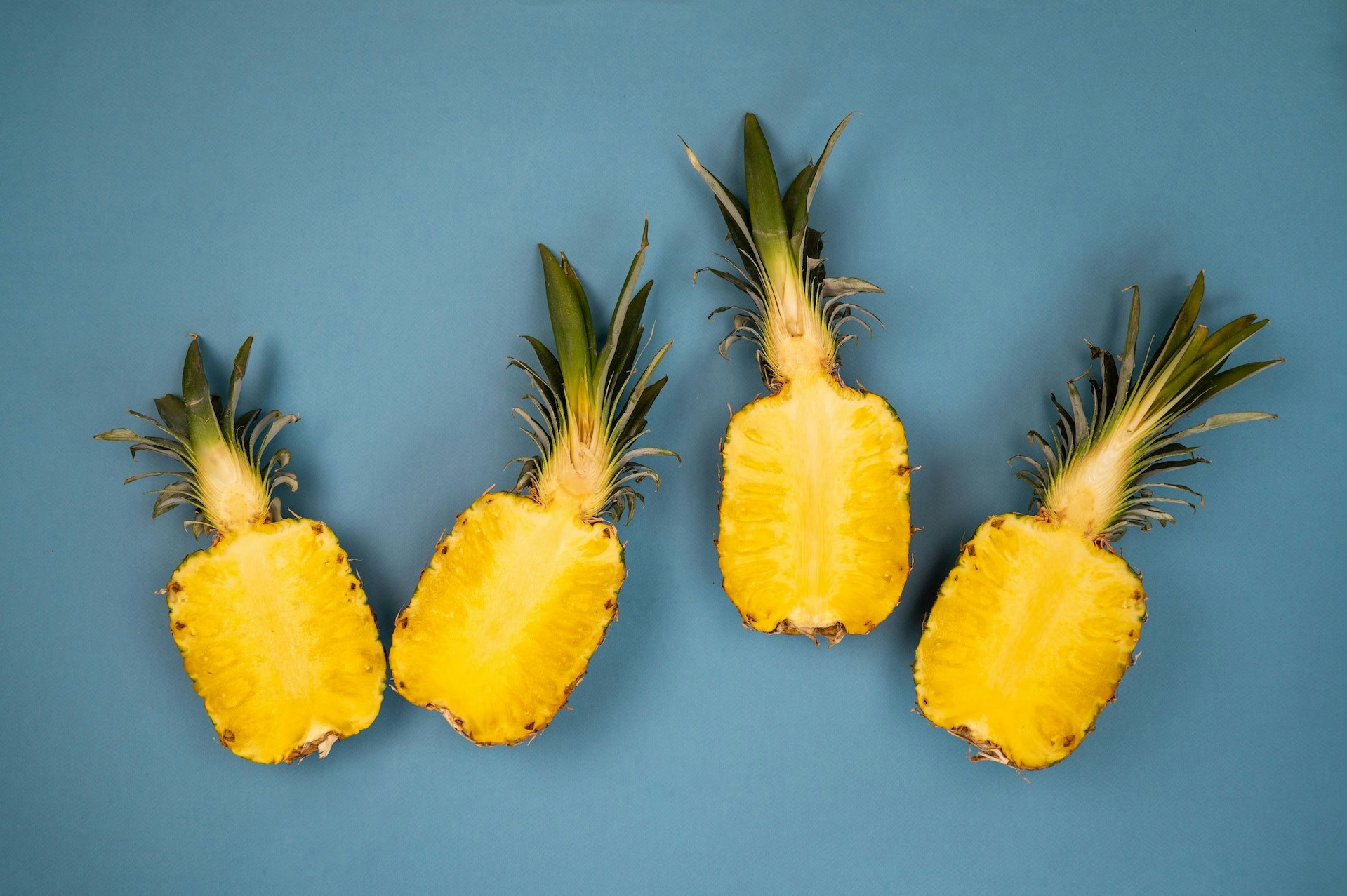Yes, pineapple juice can go bad, especially if it’s not stored correctly. It has a shorter shelf life compared to other juices.
Have you ever picked up a bottle of pineapple juice and wondered if it could go bad?
If not stored or handled properly, any juice can go bad, but pineapple juice does indeed have a shorter shelf life compared to other juices.
Why, you may be asking? We've got you covered! In this article, we'll tackle all your burning questions about pineapple juice – How long does it last? How can you tell if it's gone bad? And why is it so darn perishable? Plus, we'll give you some tips on how to store it properly to keep it fresh for longer. So, let's dive right in.
Why is Pineapple Juice More Perishable?
Pineapple juice doesn't last as long as other juices because it has natural acids and enzymes. These enzymes, like bromelain, can break down proteins and cause the juice to spoil faster.
Plus, the high acidity in pineapple juice can make it more prone to bacteria and fungus growth. So, if you're comparing it to juices with lower acidity like apple, or orange, pineapple juice might not stay fresh for as long.
To make pineapple juice last longer, manufacturers often use a process called pasteurization or heat treatment to eliminate bacteria and enzymes. If you store it in the fridge at temperatures below 40°F (4°C), it can help preserve its quality and slow down spoilage.
But keep in mind, the shelf life of any juice can be affected by different factors like storage conditions, preservatives, and how it was made. So, it's always a good idea to check the expiration date and follow the storage instructions from the manufacturer.
Storing Pineapple Juice
Okay, let's talk about storing store-bought pineapple juice. Here's a simple tip: keep it the way you found it in the store. If it was in the fridge, store it in the fridge. If it wasn't refrigerated, you can keep it in the pantry as long as it's sealed. And if you bought frozen pineapple juice, just pop it in the freezer until you're ready to drink it. Now, if you made your own pineapple juice or purchased cold-pressed juice, remember to refrigerate it as soon as possible.
Types of Pineapple Juice to Consider
There are a ton of options out there when it comes to pineapple juice. You've got canned, sugar-free, freshly squeezed, or 100% fruit juice to choose from. However, there's a bit of a catch – none of them except canned have a long shelf life.
If you don't store them properly or drink them within a couple of days, they'll go bad in no time. Even cold-pressed or homemade juice can't escape this rule. Making your own juice is great because there are no icky preservatives or additives, but it also means it's more prone to spoiling quickly.
If you've bought juice from a store, just check the use-by date on the packaging. It'll give you a rough idea of how long it can last. In general the things that affect this time are the type of juice, where you store it, and if you've opened it or not.
Cold-Pressed and Freshly Liquidized Pineapple Juice
Freshly made pineapple juice is simply amazing, don't you think? The downside is that it doesn't stay fresh for long. Bacteria begin to grow very quickly once it's out for a while, ruining its taste.
If you refrigerate it, you have around 2 to 3 days to drink it up. However, if you leave it at room temperature, it will spoil in just a few hours. So, it is suggested to enjoy it as soon as you can after you’ve liquidized it. Luckily, if you make a delicious cold-pressed pineapple juice blend, you'll likely drink it in no time.
Boxed and Bottled Pineapple Juice
Let's go over the different options available for pineapple juice at the store. Basically, you have two choices: refrigerated or unrefrigerated. Each of them has a different shelf life.
If you go for refrigerated pineapple juice, you'll need to keep it chilled, or it'll spoil pretty quickly. Just like fresh squeezed juice, it won't last more than a couple of hours at room temperature. However, if you keep it unopened in the fridge, it'll be good for about 1 to 2 weeks, or whatever the "Best-By" date lists on the package. Once you've opened it, it'll last for 8 to 9 days before it starts to go bad.
On the flip side, unrefrigerated pineapple juice can last for 3 to 9 months when it's sealed correctly. But once you've broken the seal, make sure to drink it within 8 to 10 days and store it in the fridge.
Canned Pineapple Juice
Have you ever wondered why canned pineapple juice lasts so long? Well, it's all thanks to some special ingredients and preservatives that help keep it from spoiling too soon. To make sure it's safe to drink, the juice is pasteurized, which means it's heated up before being canned to kill off any harmful bacteria. While this keeps it shelf stable, it can also affect the taste and it's overall nutrient content.
Now, the shelf life of canned pineapple juice can vary depending on the brand, but generally, unopened cans or bottles can last up to a year if stored at room temperature. But, after a few months, the taste might not be as yummy as it was when you first bought it.
So, if you want to enjoy the best flavor, it's best to drink it within four months. And once you open it up, try to finish it within 8 to 10 days if you store it in the fridge.
Concentrated Pineapple Juice
Pineapple juice concentrate is the last type of pineapple juice on the market and is a unique one. Basically, to keep it fresh for a long time, it's frozen with all the water removed before being canned or bottled. The good news is, it can last a long, long time if you keep it frozen and don't open it. However, if you do thaw it out for a nice cold glass of juice, it'll only stay fresh in the fridge for about a week. And once it's thawed, you can't freeze it again.
Signs of Spoilage
Have you ever wondered how to tell if your pineapple juice has gone bad? Well, it's not as complicated as you might think. Firstly, look for any leaks or damage to the container – that's the first red flag. Then, give it a sniff. If it smells sour or fermented like beer or wine, it's gone bad, and it's best to throw it away.
Also, keep an eye out for small bubbles or cloudiness in the juice – those are signs of fermentation and should also be avoided. Over time, the color of the juice may change and become darker, which is another sign of spoilage. And if you notice any mold growing in the juice, steer clear of it.
If the bottle is swollen or the lid pops when you open it, it's time to say goodbye to that juice. So, always check your pineapple juice before taking a sip, and you'll be good to go!
Freezing Your Pineapple Juice
Want to keep your pineapple juice fresh for longer? Here's a cool tip – just freeze it. Whether it's fresh or pasteurized, all you need to do is pour it into an airtight container with a bit of space at the top for expansion. Now, when you're ready to use it, simply pop it in the fridge to defrost.
Doing this will give you an extra 3 to 5 days before the juice goes bad. But, if you thaw it in the microwave or cold water, make sure to use it right away.
What Do the Dates on Juice Labels Really Mean?
Have you ever wondered if it's okay to drink your pineapple juice even after the “expiration” date? You may have heard that the dates on food and juice containers are just recommendations. Pineapple juice is usually labeled with terms like “Best By,” “Best if Used By,” “Best Before,” or “Best When Used By,” which simply give you an idea of when it'll taste the best. The good news is, you can still use it even after that date, as long as it's undamaged and stored properly. The taste and color may change a bit, but it's still safe to consume as long as there are no signs of spoilage. By the way, there's one date you should never ignore – the “Sell By” date. All the other dates printed on the packaging are based on that date, so if it's passed, it's best not to buy the food product.
Bottom Line
Pineapple juice is a great way to enjoy a tropical flavor all year round. However, compared to other juices, pineapple juice is more perishable. If you see it has been sitting in your fridge for too long, it may be time to toss it out, or you run the risk of getting a sour and off taste.



Comment